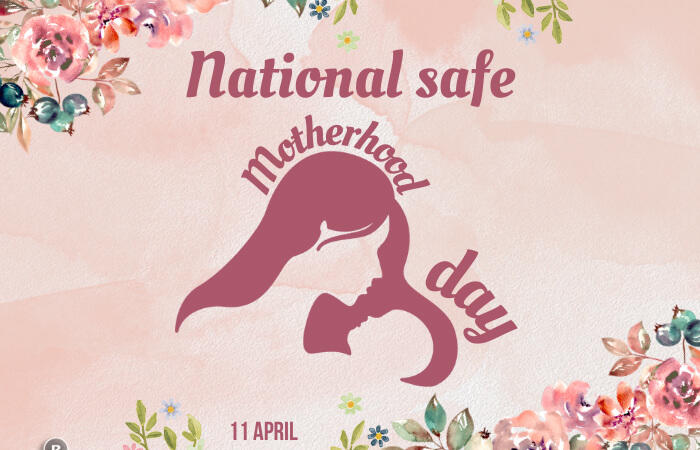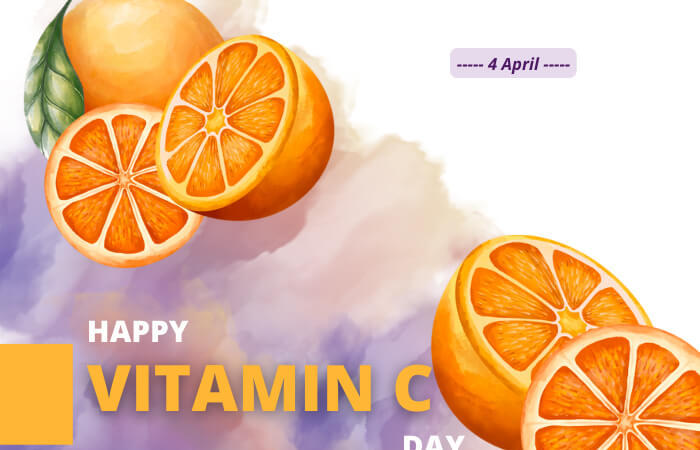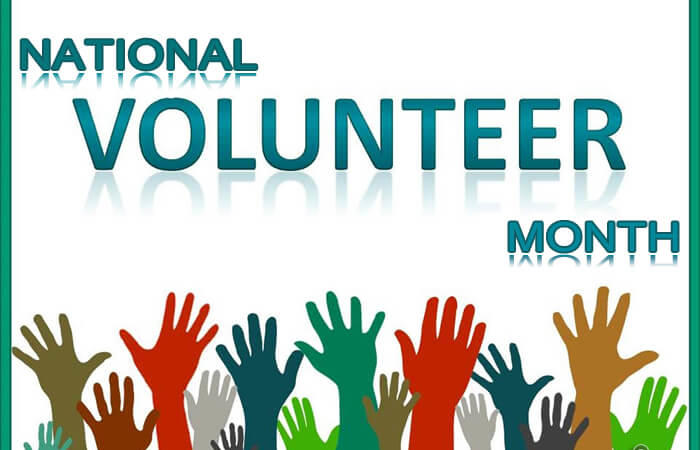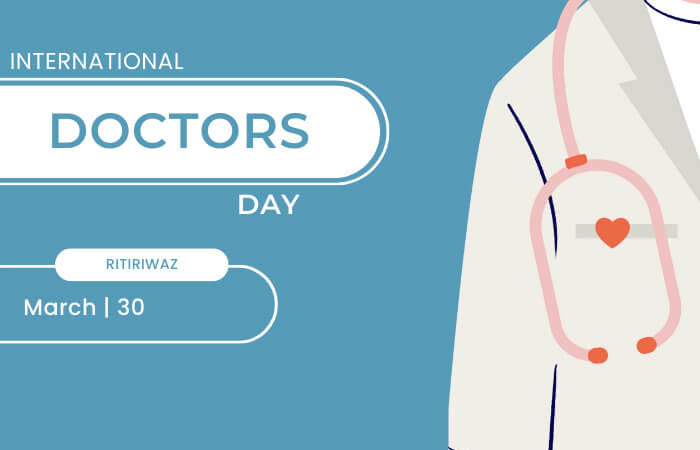Infant Protection Day – 7 November
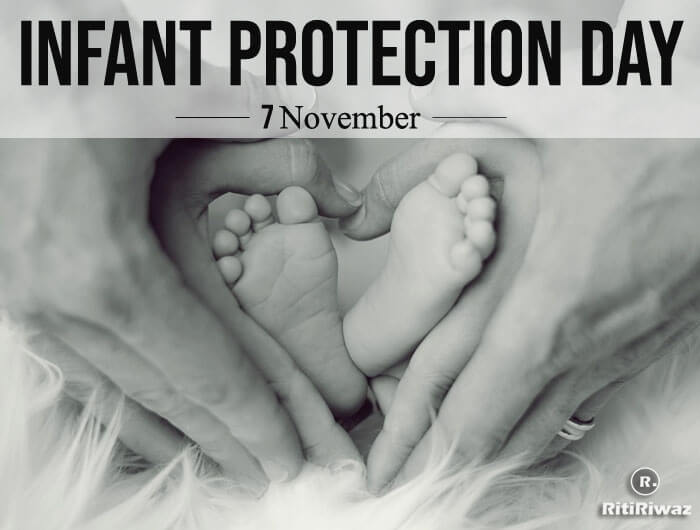
Infant Protection Day is observed on 7th November with an aim to spread awareness about the safety of infants and protect their lives by taking proper care of infants. The first few days of an infant are very important and they need extra care, many infants die due to lack of protection and proper care.
Purpose of the Day
The main purpose of observing this day is to create awareness about the protection ad care infants need. Due to lack of protection and care, infants suffer a lot of difficulties which also become a threat to their life.
Infant Mortality Rate in India
The Child Mortality Rate in India is very bad, hence the government and many NGOs have taken the initiative to build excellent services for infant care and to give them proper treatment. Children are the future so they need to be protected and taken care of.
The growing population and lack of proper awareness, and lack of proper health services are the chief factors contributing to the increasing death rate of infants. Breastfeeding is important nutrition of a baby but in today’s world, it is seen as an old-fashioned trend. So baby is nutrient deficient and quickly succumbs to disease and even loses the battle of life.
The Indian government has initiated various schemes for the benefit of infants.
Under the National Rural Health Mission (NRHM) the following programs/schemes and awareness campaign is launched by the Government to reduce the infant mortality rate:
i) Establishment of Sick New Born Care Units at District Hospitals, newborn stabilization Units at Community Health Centres (CHCs), and New Born Care corners at 24×7 Primary Health Centres (PHCs) to provide newborn and child care services.
ii) Navjaat Shishu Suraksha Karyakram (NSSK), a program for training health care providers on essential newborn care and resuscitation.
iii) Home Based New Born Care (HBNC) through ASHAs with a series of home visits.
iv) Integrated Management of Neonatal and Childhood Illness (IMNCI) and Facility-Based Integrated Management of Neonatal and Childhood Illnesses (F-IMNCI).
v) Early identification and appropriate management of Diarrhoea disease and Acute Respiratory Infections.
vi) Improving Infant and young child feeding practices including breastfeeding promotion.
vii) Immunisation against seven vaccine-preventable diseases.
viii) Vitamin A supplementation and Iron and Folic Acid supplementation;
ix) Establishment of Nutritional Rehabilitation Centres to address severe and acute malnutrition.
x) Promotion of institutional deliveries through JananiSurakshaYojana (JSY);
xi) Capacity building of health care providers in basic and comprehensive obstetric care;
xii) Operationalization of sub-centers, Primary Health Centres, Community Health Centres, and District Hospitals for providing 24×7 basic and comprehensive obstetric care services;
xiii) Name-based web-enabled tracking of pregnant women to ensure antenatal, intra-natal, and postnatal care.
xiv) Mother and Child Protection Card in collaboration with the Ministry of Women and Child Development to monitor service delivery for mothers and children.
xv) Antenatal, Intra-natal, and Postnatal care including Iron and Folic Acid supplementation to pregnant & lactating women for prevention and treatment of anemia.
xvi) Engagement of more than 8.8lakhs Accredited Social Health Activists (ASHAs) to generate demand and facilitate accessing of health care services by the community.
xvii) Village Health and Nutrition Days in rural areas as an outreach activity, for the provision of maternal and child health services.
xviii) Health and nutrition education to promote dietary diversification, the inclusion of iron and foliate-rich food as well as food items that promote iron absorption.
xix) Janani Shishu Suraksha Karyakaram (JSSK) has been launched on 1st June 2011, which entitles all pregnant women delivering in public health institutions to absolutely free and no expense delivery including Caesarean section. The initiative stipulates free drugs, diagnostics, blood, and diet, besides free transport from home to institution, between facilities in case of a referral and drop back home. Similar entitlements have been put in place for all sick infants accessing public health institutions for treatment.
xx) Rashtriya Bal Swasthya Karyakram (RBSK), an introduction of child health screening for 4Ds i.e. defects at birth, deficiencies, diseases, development delays, and their management among the children 0-18 years of age.
Over the past 30 years, there has been a concentrated effort to prevent and treat causes of child death due to hunger, poor sanitation, pneumonia, and malaria that has helped India in preventing child deaths considerably.
Worldwide 7,000 newborns lose their lives every day, which creates 47 percent of all infant deaths between the age of 0 to 5 years, which was 40 percent in 1990.
Inspiring Quotes for promoting Infant Protection
-
“Every child begins the World again.” – Henry David Thoreau
-
Children are the world’s most valuable resource and its best hope for the future. – John F. Kennedy
-
A baby is born with a need to be loved – and never outgrows it. – Frank A Clark
-
There is no greater warrior than a mother protecting her child. – N.K. Jemisin
-
Like stars are to the sky, so are the children to our world. They deserve to shine!” – Chinonye J. Chidolue
-
“Babies are the buds of life ready to bloom like a fresh flower to refresh humanity.” – Debasish Mridha
-
For the infant industry, protection is a legitimate demand, but infants must grow up one day. – Indira Gandhi
Let’s transform the word into a cocoon of safety for every infant to blossom into a responsible citizen. Spread awareness regarding protecting, promoting, and developing infants.
Suggested Read: Important Days In November



